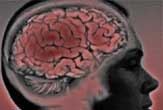People in Vegetative State Can Learn

Get the world’s most fascinating discoveries delivered straight to your inbox.
You are now subscribed
Your newsletter sign-up was successful
Want to add more newsletters?

Delivered Daily
Daily Newsletter
Sign up for the latest discoveries, groundbreaking research and fascinating breakthroughs that impact you and the wider world direct to your inbox.

Once a week
Life's Little Mysteries
Feed your curiosity with an exclusive mystery every week, solved with science and delivered direct to your inbox before it's seen anywhere else.

Once a week
How It Works
Sign up to our free science & technology newsletter for your weekly fix of fascinating articles, quick quizzes, amazing images, and more

Delivered daily
Space.com Newsletter
Breaking space news, the latest updates on rocket launches, skywatching events and more!

Once a month
Watch This Space
Sign up to our monthly entertainment newsletter to keep up with all our coverage of the latest sci-fi and space movies, tv shows, games and books.

Once a week
Night Sky This Week
Discover this week's must-see night sky events, moon phases, and stunning astrophotos. Sign up for our skywatching newsletter and explore the universe with us!
Join the club
Get full access to premium articles, exclusive features and a growing list of member rewards.
Patients in vegetative or minimally conscious states may not be able to speak for themselves or report that they are aware of their surroundings, but some can learn, according to a new study.
The results suggest that certain learning tests may help doctors to diagnosis patients with these conditions and may indicate how much the patients are likely to recover.
The study was the first to test learning in patients with certain disorders of consciousness. In this case, patients were either in a vegetative state, a condition in which people are awake but apparently not aware and do not have voluntary responses, or a minimally conscious state, in which patients start to show voluntary behavior and occasionally respond to commands.
The researchers tested a type of learning known as classical, or Pavlovian, conditioning, which is thought to require consciousness, in 22 patients. They looked at whether or not the patients could learn to associate a beeping sound with a puff of air blown into the eye, which causes blinking. The researchers played the sound, and then half a second later, administered the air puff and monitored the muscle activity around the eye. If a person is learning, he or she will blink upon hearing the sound, before the air puff is given, exhibiting an anticipation of the annoying sensation about to occur.
Some of the patients did indeed show learning. Three patients performed almost as well as a control group of normal subjects that also underwent the test, said Tristan Bekinschtein, the lead author and researcher from the University of Cambridge's Wolfson Brain Imaging Unit in the U.K. Another seven patients showed some signs of learning, and the other 12 patients showed almost no learning, he said.
In contrast, a second control group of anesthetized patients that showed no signs of consciousness did not learn, which was expected.
Interestingly, the researchers did not find any difference in learning between those in a vegetative state and those in a minimally conscious state. "What [this] tells us is that there might be a fair amount of misdiagnosis, or that some of the vegetative subjects were in fact minimally conscious," Bekinschtein told LiveScience.
Get the world’s most fascinating discoveries delivered straight to your inbox.
They also found that the amount of learning was a good predictor of how much the patients were able to recover, or improve in their condition.
"[In] most of the patients that showed learning, six months or a year later, they showed some degree of recovery; and all of the patients that showed no learning showed no change – they did not get better, some of them they got worse," Bekinschtein said.
However, the patient's learning may not be fully related to their consciousness, said Bekinschtein, who also pointed out that their assessment did not directly test consciousness.
"It could be that they are not conscious exactly at the time we tested, but our results suggest that at least the network that supports conscious processing was in some way functioning," he said. It is possible that these networks are very close to working at the time of the test, and they get better when the patient recovers consciousness, he added.
The study was a collaboration between researchers at the University of Buenos Aires, the University of Cambridge and the Institute of Cognitive Neurology in Argentina. The results were published in the Sept. 20 online edition of the journal Nature Neuroscience.

Rachael is a Live Science contributor, and was a former channel editor and senior writer for Live Science between 2010 and 2022. She has a master's degree in journalism from New York University's Science, Health and Environmental Reporting Program. She also holds a B.S. in molecular biology and an M.S. in biology from the University of California, San Diego. Her work has appeared in Scienceline, The Washington Post and Scientific American.
 Live Science Plus
Live Science Plus










